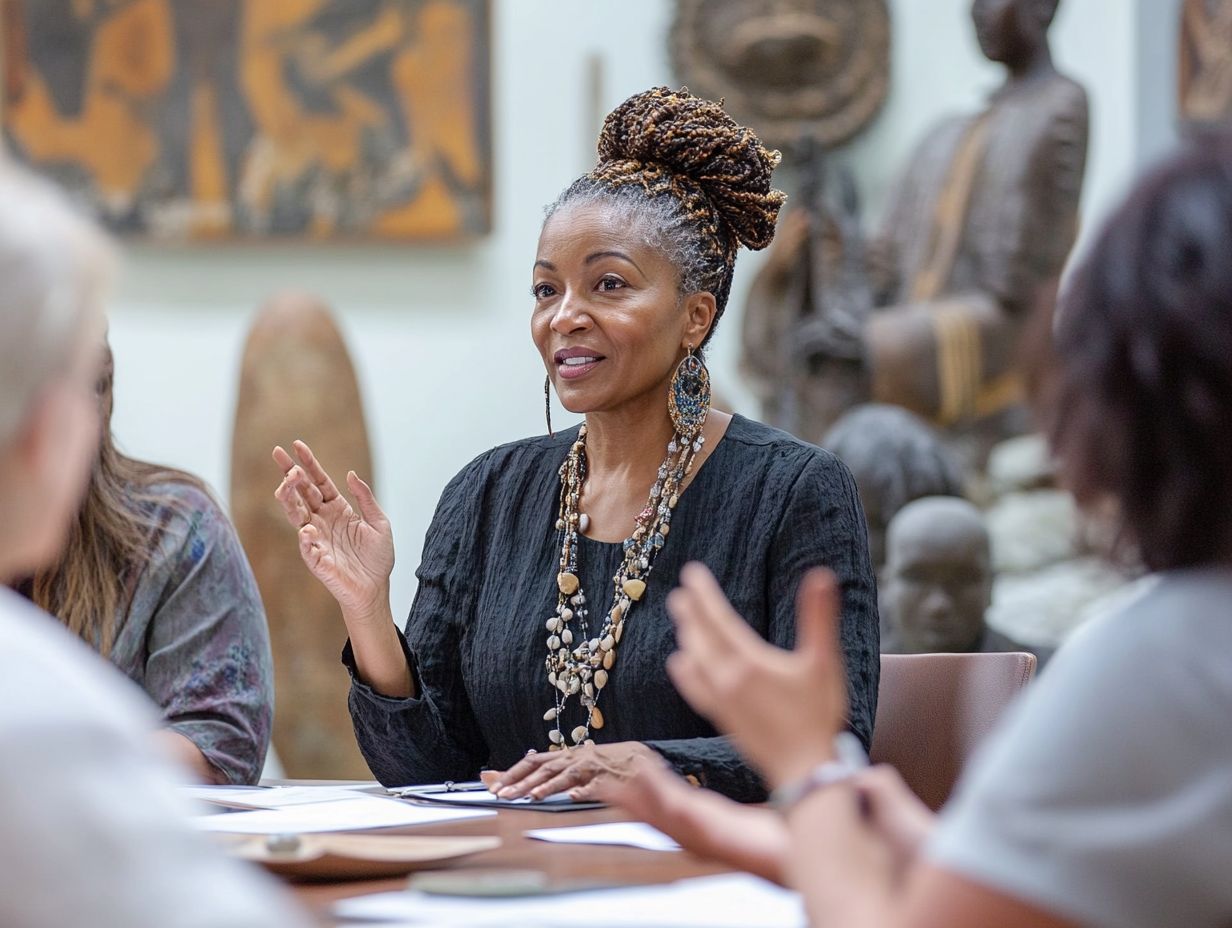Preparing for Cultural Differences in Applications
Navigating cultural differences is essential in today’s diverse landscape, particularly when it comes to job applications and interviews. Understanding the nuances of various cultures can dramatically influence your chances of success.
This article delves into the concept of culture and its impact on applications, shedding light on common variations in communication styles, values, and expectations. It also offers practical tips for researching cultures, adapting your approach, and effectively addressing these differences during interviews.
Explore strategies to enhance your cultural competence and foster meaningful connections in the workplace.
Contents
- Key Takeaways:
- Understanding Cultural Differences in Applications
- Common Cultural Differences in Applications
- How to Prepare for Cultural Differences in Applications
- Addressing Cultural Differences in Interviews
- Overcoming Challenges and Building Bridges
- Frequently Asked Questions
- What does it mean to prepare for cultural differences in applications?
- Why is it important to prepare for cultural differences?
- How can I research cultural norms for applications?
- What common mistakes should I avoid?
- How can I ensure my application is culturally sensitive?
- What if I m unsure about cultural norms?
Key Takeaways:

- Research the culture of the company or country you are applying to in order to adapt your approach.
- Be aware of different communication styles and expectations in the application process.
- Cultural competence is a valuable skill for navigating job applications and interviews.
Understanding Cultural Differences in Applications
Understanding cultural differences is crucial. This is especially true if you come from a diverse background. When crafting personal statements and preparing for university applications, these nuances influence how you present your cultural identity, engage with various experiences, and showcase your unique candidacy in a multicultural setting.
By cultivating cultural awareness, you can effectively convey your academic journey and the value you bring as an international student and community leader. Recognizing these dynamics not only enriches your application but also promotes deeper cultural integration and engagement with communities worldwide.
What is Culture and How Does it Impact Applications?
Culture encompasses the beliefs, values, and behaviors shared by your community, and it plays a significant role in shaping your university applications. It influences how you present yourself and your experiences.
Understanding these cultural values can be your key to standing out. For instance, if you were raised in a culture that values community over individual achievements, you might focus on teamwork in your application. Conversely, if your background emphasizes individual success, highlight your personal accomplishments.
These cultural distinctions resonate differently with admission committees, leading to varied interpretations of what constitutes success and potential. Recommendation letters also reflect these cultural nuances. A teacher from a culture that prioritizes direct communication may provide straightforward assessments, while one from a more indirect background might subtly emphasize your qualities, ultimately influencing how you are perceived in your academic pursuits.
Common Cultural Differences in Applications
Among the prevalent cultural differences in university applications are variations in communication styles, etiquette, expectations, and values. These factors can significantly influence how candidates are perceived by admission committees.
Grasping these nuances is crucial for crafting personalized statements and recommendation letters that not only resonate with diverse audiences but also authentically reflect the applicants’ cultural backgrounds.
Communication Styles and Etiquette
Communication styles and etiquette can differ dramatically across cultures, influencing how you express yourself in your university applications and personal statements. Grasping these cultural nuances is crucial for conveying your message effectively while adhering to the appropriate etiquette throughout the application process.
Various cultures emphasize different traits some may value directness, while others prioritize politeness or humility. This focus can significantly shape the tone and structure of your application. For example, if you come from a collectivist background, you might highlight teamwork and community achievements. In contrast, someone from an individualistic culture may lean more toward personal accomplishments.
To navigate these cultural differences, it’s essential for you to research the specific norms associated with the institutions to which you re applying. Be mindful of how much personal information you choose to disclose and the level of assertiveness you wish to convey. By tailoring your approach to align with these cultural expectations, you can significantly enhance your chances of leaving a positive impression.
Expectations and Values

Expectations and values play a pivotal role in shaping how you approach your university applications, often mirroring your cultural beliefs and insights. Understanding these influences gives you the power to align your narrative with the diverse expectations of admissions committees.
For instance, if you come from a collectivist culture, you might choose to highlight community service and teamwork in your personal statement. This approach not only showcases your individual achievements but also emphasizes how your contributions have positively impacted those around you.
On the other hand, if you hail from a more individualistic background, you may want to spotlight your personal milestones, drawing attention to your unique strengths and aspirations.
By appreciating these varied perspectives, you can more effectively tailor your application to resonate with specific institutional values. This strategic alignment can significantly enhance your chances of acceptance. It also ensures that your academic journey enriches your personal growth and cultural identity.
How to Prepare for Cultural Differences in Applications
Preparing for cultural differences in university applications requires careful research and a deep understanding of the cultural understanding in applications pertinent to the institutions you’re targeting. Preparing well opens doors for cultural integration and personal growth.
By equipping yourself with the insights necessary to navigate diverse cultural experiences, you position yourself for success in a global educational landscape!
Researching the Culture
Researching the culture of the universities you’re applying to is essential for you as an international student. This effort allows you to gain a deeper cultural understanding that can shine through in your applications. By looking into cultural traits, values, and social norms, you can navigate the application process with greater insight.
Engaging with various resources like institutional websites, social media platforms, and student testimonials enables you to uncover valuable insights. These insights help you craft personalized statements and foster an appreciation for the diverse communities you aim to join.
This knowledge gives you the power to articulate your experiences and aspirations in a way that resonates with the institution’s ethos, showcasing your genuine interest and openness to different cultural perspectives.
Ultimately, a well-rounded cultural understanding can significantly deepen the emotional connection established within your applications. This connection sets you apart in the selection process.
Adapting Your Approach
Adapting your approach to university applications with cultural insights is vital for effectively engaging with diverse backgrounds. This adaptability enhances how your cultural background and experiences are perceived.
By demonstrating a deep understanding of cultural values and practices, you can forge meaningful connections with your audience. For instance, sharing anecdotes that highlight your multicultural experiences can illustrate how you embrace diversity.
Spotlighting your participation in community initiatives is helpful, as these experiences reflect your ongoing engagement with various cultures. These strategies elevate your application and show your commitment to inclusivity.
Addressing Cultural Differences in Interviews
Addressing cultural differences in interviews is crucial for you as an applicant. These interactions demand not only effective communication but also a keen understanding of cultural nuances.
By honing your negotiation skills and cultivating an awareness of various cultural traits, you can present yourself with both confidence and authenticity.

Navigating cultural differences during the interview process requires awareness of various cultural dynamics. You should be ready to showcase your cultural awareness and adaptability to leave a lasting, positive impression.
To set yourself up for success, begin by researching the company’s culture and values, as well as the backgrounds of your interviewers. Grasping the subtleties of body language, tone, and the significance of silence across different cultures can be incredibly advantageous.
Embrace the opportunity to learn and appreciate diversity. This not only enhances your appeal as a candidate but also signals your potential to thrive in diverse environments.
Such adaptability is a priceless asset, reinforcing the belief that embracing various perspectives can lead to innovative solutions and create a harmonious workplace.
Overcoming Challenges and Building Bridges
Overcoming challenges and bridging cultures is crucial for cultivating cultural competence the ability to understand and interact effectively with people from different cultures in the university application process.
By engaging with community leaders and gaining insights into diverse cultural dynamics, you can enhance your ability to connect and communicate with a wide range of individuals.
Strategies for Building Cultural Competence
Building cultural competence requires you to employ intentional strategies that enhance your cultural understanding and personal growth, ultimately empowering you to navigate the diverse landscapes of university applications.
To cultivate this essential skill, immerse yourself in cultural events like festivals and workshops. These experiences allow you to gain firsthand insights and make meaningful connections.
Consider exploring your own background, reflecting on how your personal experiences and values shape your perspectives. By integrating lessons learned from diverse interactions into your applications, you enrich your narrative and showcase your appreciation for multicultural environments.
Frequently Asked Questions
What does it mean to prepare for cultural differences in applications?
Preparing for cultural differences means understanding and adapting to the unique norms and values of your audience. This includes adjusting language, visuals, and overall presentation to connect with the specific culture.
Why is it important to prepare for cultural differences?

This preparation shows respect for your audience’s culture. It also boosts the chances of your application being well-received.
How can I research cultural norms for applications?
Start by consulting people from the target culture or doing online research. Seeking advice from cultural sensitivity experts can also be very helpful.
What common mistakes should I avoid?
Avoid using inappropriate language or visuals. Don t make assumptions about the culture and always consider any sensitivities or taboos.
How can I ensure my application is culturally sensitive?
Involve members of the target culture in the creation process. Their feedback can help identify potential biases.
What if I m unsure about cultural norms?
Seek guidance from cultural sensitivity experts. Conduct thorough research and talk to individuals from the culture for their insights.






